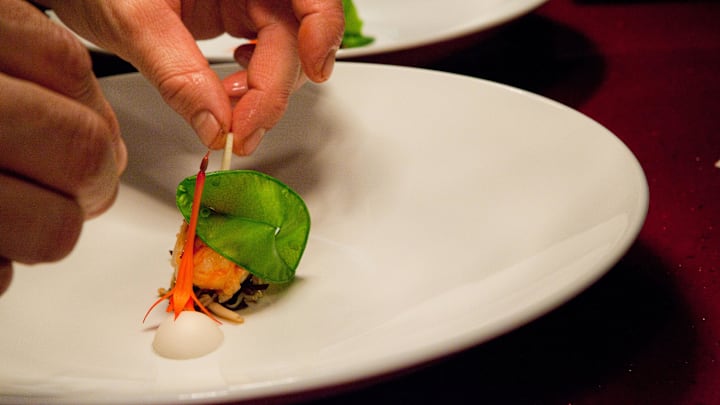In a world where the three Rs, reduce, reuse, recycle, might have been a mantra embedded into the Earth Day concept, the ideas need to be used beyond just a single moment. For chefs, those concepts within the restaurant setting are more than just empty words. Applying them in a restaurant setting can inspire a chef’s culinary creativity and innovate the dining environment. Not only do guests long for a seat at the table, but they apply the ideas once they return home.
While some popular restaurants try to infuse a particular flavor or highlight particular ingredients as part of their response to food trends, independent restaurants look beyond that simple moment in time. Appreciating the bigger picture beyond the food on the plate endears the chef not only to the diner but invites them to see the impact days, weeks, or longer into the future.
For years, concepts of nose to tail or root to tip have gone hand in hand with the reliance on the local farm or the microgreens grown in a corner of the kitchen. Chefs appreciate that quality ingredients impact the final product. Impeccable flavors cannot be achieved with subpar ingredients.
While the importance of the farm, fresh offerings will always be front of mind, respecting those ingredients, every part, unearths another element, not letting any element go to waste. Today’s innovative chefs are looking at how every ingredient can be used and repurposed. It is more than just scraps finding their way to flavor another dish, it is repurposing each and every element.
During this year’s Montreal En Lumiere event, Chef Noé Lainesse, of the celebrated restaurant O'thym, hosted the team from El Silo from London. While the pop-up event was just for a few celebrated dinners, the event had a bigger impact.
For those unfamiliar with El Silo, the culinary team has been able to completely remove the “bin” (trash can) from the restaurant. While they have been able to reduce their waste to a single cube, it takes thoughtfulness, creativity, and ingenuity to accomplish that feat.
With the collaboration with O’thym, the concept did not fade once the dishes were collected from the table. The thoughtfulness and innovation that started with a conversation cumulated in a new direction for the Montreal based restaurant.
The special event invited diners to look at food differently. It was more than the use of fermentation as a way to repurpose a leftover vegetable that would have otherwise gone to the compost. It was an exploration of what flavor means, how ingredients can transport the diner, and how people need to think beyond the plate.
The multi-course dinner was a symphony of flavor, yet nothing was pretentious or audacious. Each course built on the foundational concept of food is precious, should be celebrated, and should never be taken for granted. When those ideas come to the table, the willingness to never put an unnecessary item in the bin focuses the concept before it comes to the guest. The after conversation is just as important as the before.
More importantly, the unique experience impacted how the restaurant is acting moving forward. Whether it is finding space to allow for fermentation of various ingredients or creating a menu that can be planted in the garden, O’thym is looking to impact diners when they leave the dinner and for time to come.
This type of thoughtfulness is more than just a food trend or a desire to earn a Green Michelin Star. It is a forward-thinking approach that ensures the other ideas of root to tip, eating local, or sustainable cooking can continue for years to come.
Everyone needs to look at the possibilities to repurpose ingredients to reduce waste. The chef might see its importance, but hopefully the diner will apply similar lessons in their own kitchen.
